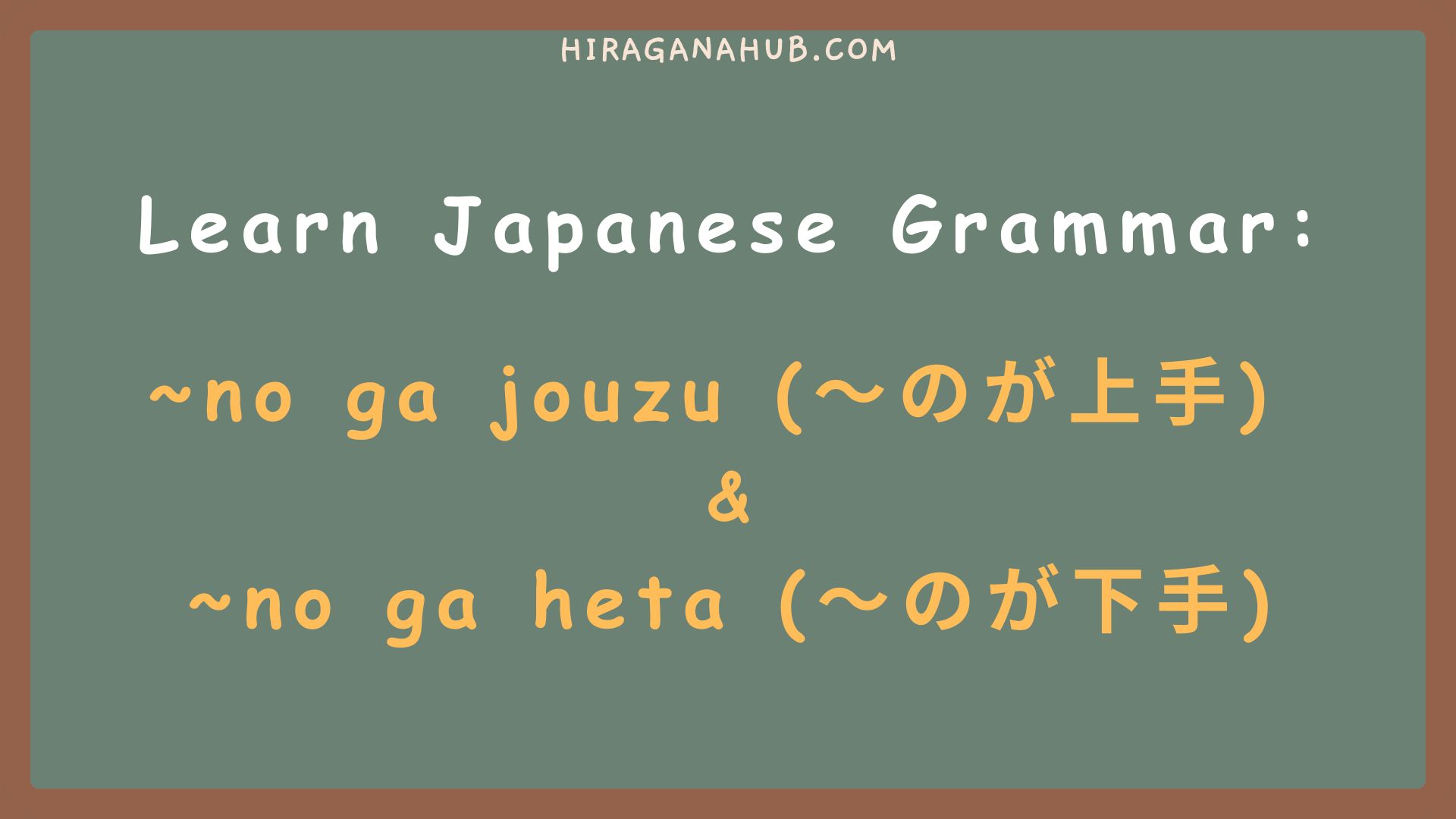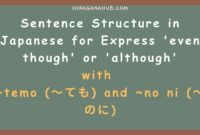Konnichiwa, mina-san! If you want to learn Japanese online free, understanding essential grammar patterns is key. Today, we’ll break down ~no ga jouzu (~のが上手) and ~no ga heta (~のが下手), two fundamental N5-level structures frequently tested in exams and used in daily conversation.
These patterns express skill levels—whether someone is good or bad at something. Let’s dive in!
Japanese Grammar Pattern: ~no ga jouzu (~のが上手)
Meaning: Skilled, good at (something)
Kanji Note: 上手 is a special reading (jukugo), so memorize it as a set.
Structure:
Noun + が + 上手
Verb (dictionary form) + の + が + 上手
Examples:
あの女は料理が上手ですね。
Ano onna wa ryouri ga jouzu desu ne.
She is good at cooking, isn’t she?
武は歌うのが上手ではないです。
Takeshi wa utau no ga jouzu dewanai desu.
Takeshi is not good at singing.
御幸は野球が上手です。
Miyuki wa yakyuu ga jouzu desu.
Miyuki is good at baseball.
Important Note:
Jouzu (上手) is typically used to praise others, not yourself. If you want to say you’re skilled at something, use tokui (得意) instead.
Examples with Tokui (得意):
私はサッカーが得意です。
Watashi wa sakkaa ga tokui desu.
I am good at soccer.
私は漢字を書くのがあまり得意ではありません。
Watashi wa kanji o kaku no ga amari tokui dewa arimasen.
I’m not very good at writing kanji.
Japanese Grammar Pattern: ~no ga heta (~のが下手)
Meaning: Unskilled, bad at (something)
Kanji Note: 下手 also has a special reading—practice it!
Structure:
Noun + が + 下手
Verb (dictionary form) + の + が + 下手
Examples:
私はサッカーが下手です。
Watashi wa sakkaa ga heta desu.
I’m bad at soccer.
武は歌うのが下手です。
Takeshi wa utau no ga heta desu.
Takeshi is bad at singing.
私は日本語がまだ下手ですけど頑張ります。
Watashi wa nihongo ga mada heta desu kedo ganbarimasu.
My Japanese is still weak, but I’ll keep trying.
Key Takeaways
- Jouzu (上手) = Skilled (usually for others)
- Tokui (得意) = Skilled (can be used for yourself or others)
- Heta (下手) = Unskilled (used neutrally)
Mastering these patterns will help you learn Japanese online free more effectively! If you have questions, drop them in the comments. Bookmark this page for future reference, and see you in the next lesson!
Mata ne!



